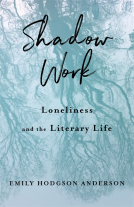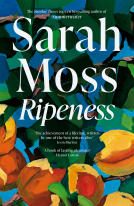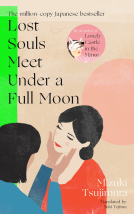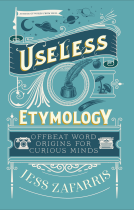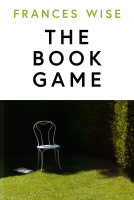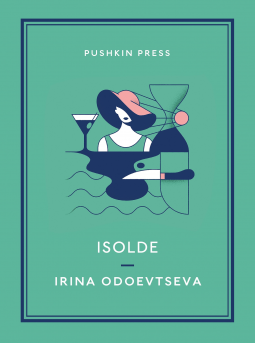
Isolde
by Irena Odoevtseva
This title was previously available on NetGalley and is now archived.
Send NetGalley books directly to your Kindle or Kindle app
1
To read on a Kindle or Kindle app, please add kindle@netgalley.com as an approved email address to receive files in your Amazon account. Click here for step-by-step instructions.
2
Also find your Kindle email address within your Amazon account, and enter it here.
Pub Date 5 Nov 2019 | Archive Date 9 Sep 2019
Pushkin Press | Pushkin Collection
Talking about this book? Use #Isolde #NetGalley. More hashtag tips!
Description
Left to her own devices in Biarritz, fourteen-year-old Russian Liza meets an older English boy, Cromwell, on a beach. He thinks he has found a magical, romantic beauty and insists upon calling her Isolde; she is taken with his Buick and ability to pay for dinner and champagne.
Disaffected and restless, Liza, her brother Nikolai, and her boyfriend Andrei enjoy Cromwell’s company in restaurants and jazz bars after he follows Liza back to Paris—until his mother stops giving him money. When the siblings’ own mother abandons them to follow a lover to Nice, the group falls deeper into its haze of alcohol, and their darker drives begin to take over.
First published in 1929, Isolde is a startlingly fresh, disturbing portrait of a lost generation of Russian exiles by Irina Odoevtseva, a major Russian writer who has never before appeared in English.
Advance Praise
"Enthralling… a compellingly conflicted portrait." — Guardian Review
"Lovely but also ominous… a gem of a novel, intensely attractive and bitter at the same time." — Spectator
"Enthralling… a compellingly conflicted portrait." — Guardian Review
"Lovely but also ominous… a gem of a novel, intensely attractive and bitter at the same time." — Spectator
Available Editions
| EDITION | Other Format |
| ISBN | 9781782274773 |
| PRICE | US$18.00 (USD) |
| PAGES | 192 |
Featured Reviews
Isolde was an enjoyable read. She was a fascinating character who was, in many ways, hard to pin down, perhaps because she was still too young to really know herself. However, she reminded me of Lolita in some ways, as she clearly was aware of the effect she had on men and how to use that to best advantage. Once or twice, I did wonder why the men in the tale were so obsessed with her. She could be annoying, so I guess it must have come down solely to looks. I don't want to risk spoilers, but the story did take a direction I hadn't expected at the outset, and that helped hold my interest from start to finish. This is not so much a book with a clear beginning, middle, and end. Rather it's a snapshot of a formative period in a young girl's life. Where she goes once the final page is turned is left to the reader's imagination.
I enjoyed Isolde or as much as you can enjoy a very dark modern re-telling of Isolde.
The writing is very suggestive and atmospheric.
Liza/Betsy/Isolde is quite Lolita-esque and naïve. She's aware of her impression to men, but otherwise it seems she has no clue what's going on or surpresses the truth ("I don't want to grow up.")
I loved her statement that nobody knows anything about each other, which in this novel is true. Lots of drama and suffering until the end.
I also enjoyed the prologue about the author at the beginning, very interesting and a nice touch.
Thank you Pushkin and Netgalley for providing me with an eARC.
This is awful forgive me, but I wholly requested this book because of its gorgeous cover and name. Isolde is just beautiful and flows simply from the lips. I’m glad my childish love of everything pretty paid off because this was a fantastic read. Admittedly, I am in a mood right now where I will cry at the drop of a hat but this book absolutely will pull every emotion out of you with its atmospheric writing and complex characters.
Isolde is not the main characters real name. It’s Liza and she is an emigrant from Russia who yearns for home and by chance meets a wealthy man who dubs her Isolde. From then on a whirlwind forms and never let’s up.
This book is bleak and real so if you’re expecting a light, fluffy read than this is not for you. What you will get is a weaving of characters going through the rough choppy motions of life. You know you’re in for a good read when even the prologue about the author is able to pull you in. This is a sign of a great writer and translator.
Thanks very much to the publisher and Netgalley for this copy of my ARC. All opinions are my own.
 Rachel H, Reviewer
Rachel H, Reviewer
Isolde was my introduction to Irina Odoevtseva – a fascinating woman whose life and work is contextualized brilliantly in the introduction to this Pushkin Press edition, the first ever translation of Isolde into English, almost a century after its 1929 publication. Isolde is a delightful, sparse, and sad book set in early twentieth century France, where fourteen-year-old Liza and her brother Nikolai are essentially left to their own devices by an extremely neglectful mother who insists on pretending in public (and often even in private) that she is their older cousin. On holiday in Biarritz, Liza meets a slightly older boy, Cromwell, who becomes enchanted by her and declares that her new name will be Isolde. The story then follows this trio – Liza, Cromwell, and Nikolai – back to Paris, where they’re abandoned altogether by their mother, with disastrous results.
As explained in the introduction, Odoevtseva herself was Russian and living in exile at the time of writing Isolde, and these circumstances are reflected in her narrative. The absence of Liza and Nikolai’s home country plays heavily on their imaginations – a naive, idealistic image of Russia only grows when abandoned by their mother in Paris. After some head hopping, the focus of the novel ultimately zeroes in on Liza, whose burgeoning sexuality, parental neglect, and nebulous national identity all shape the story which is driven less by a coherent plot and more by snapshots of Liza’s adolescence.
I found this thoroughly enjoyable, at times quite dark, and altogether unexpectedly modern. Not overly modern in language – the translation by Brian Karetnyk and Irina Steinberg was excellent – but in terms of content; there’s a focus on Liza’s autonomy over her sexuality, and it rather subverts expectations in more ways than one. (There’s also a rather inconsequential scene where a character is talking about how she’s kissed other girls but she can’t imagine kissing a man.) It’s a really solid gem of a book and I’m looking forward to checking out more by Irina Odoevtseva, as well as more from Pushkin’s modern classics series.
 Cristiano T, Reviewer
Cristiano T, Reviewer
I would like to give the Pushin Collection kudos for these nice little books they have been putting forward. Love the covers and format as well as the new translations put forward.
This was a nice sumer read. A boy falls in love with Liza on a beach in Biarritz, but constantly calls her Isolde, after the 12th century romance story. Liza on her hand is very decadent, very bourgeois, very interware periode-esque. She is not a girl anymore, but yet not a woman, a little coming of age. We learn that Liza's mother was absent and moved from Russia to France to make a new home. The ending is sort of tragic.
For some reason, it made me think of a female Great Gatsby. Enjoyed it quite a bit!
Teens, parents, relationships. This book works on many levels and could even be set in the present time.
 Isabella K, Reviewer
Isabella K, Reviewer
Originally published in 1929, it is gut-wrenching and tragic. It's mostly about Liza, who is just fourteen years old at the novel's start. That summer in Biarritz, Cromwell falls in love with her, and christens her Isolde after the novel he's reading. She adores the attention, and her brother Nikolai is quick to recognize the opportunity to milk Cromwell for extravagant evenings at the casino and the use of his car. When they return to Paris, Liza's boyfriend Andrei joins in the excesses.
Liza and Kolya's mother, meanwhile, is mostly absent. She insists they call her Natasha, never Mama, as she presents herself as their aunt charged with the orphans' care. She is always on the lookout for a man to fund her lifestyle. One such lover is the hapless Bunny – married and irresponsible, driving his own family to the poorhouse for Natasha's sake. He has difficulty accepting that Natasha prefers another, and that she has no use for him with his money gone:
<blockquote>
His desperation and pain had disappeared. He felt quiet, calm and light. He felt like it wasn't Fanny lying next to him, not his wife, but his grandmother, and they had wrapped themselves up in her chequered shawl. It smelt of cinnamon and onions. And it wasn't Fanny sighing and sobbing at his ear, but his grandmother teaching him in her monotone voice:
"Man must not lie. Man has a small head. He'll lie and then he'll forget what he's lied about. Not like a horse. A horse has a big head. A horse can lie if it wants to."</blockquote>
(Oh, the foolish men, who never consider the consequences.)
Even while Liza condemns her mother's behaviour, she emulates it. Sadly, Natasha begins to see Liza's youth and beauty as a threat. And she leaves with her lover for Nice, never to be seen again.
There's probably a thesis in here about women's age and sexuality — the women are grandmothers and asexual, or caretakers and asexual, or they are young, beautiful, and privileged and burgeoning with sexuality. We encounter Cromwell's mother only two or three times, but have a very clear picture of the kind of woman she is:
<blockquote>
She got back into bed. As she pulled up the cover, her hand brushed her naked breast and immediately recoiled in disgust, as if she had touched a toad, so repulsive was her naked body to her.</blockquote>
About midway through the novel, we flash back to Liza's early childhood. I felt this section lagged a little. On the whole, Natasha's motivations are already quite clear; this background made me mildly more sympathetic toward her. But this section goes a long way toward explaining Liza's relationship with Russia and some of her actions later in the book.
Liza is itching to grow up, but she still longs to be mothered. How differently she might've fared if her mother had not abandoned her.
<blockquote>
She reaches out a hand and plucks an apple from the fruit bowl.
She no longer has a heart in her breast. It's empty and silent there. Her heart is this red apple. This is it — her heart. It's sitting in the palm of her hand. It's exposed, it's beating, it flutters and it loves. It feels everything. She squeezes it with her fingers, and her heart feels pain. What should she do with it? What should she do with her heart?
She holds the apple out to Andrei.
"Eat this Andrei, it's a gift from me to you."
Andrei takes the apple indifferently, rubs it on his sleeve and then digs his strong white teeth into it, taking a big bite.
"This pain is going to be horrible," Liza thinks. "He's eating my heart." She clenches her fists to stifle a cry of pain. But it doesn't hurt at all. She looks at Andrei in surprise and watches his white teeth chomp on the apple. And it doesn't hurt at all. "It's not my heart. I'm just drunk. Drop it. Don't eat it, Andrei."
Andrei throws the apple core on the floor.</blockquote>
She doesn't love Cromwell, or his cousin. She doesn't know Russia enough to love her, but she loves the idea of Russia. I think she loves Andrei in a similar way, for what he represents. And Liza's heart is eaten alive.
<blockquote>
"You know, Andrei, I keep thinking," she said slowly. "I keep thinking how difficult and dreary life must be if childhood is as good as it gets. And if it's all downhill from here, I don't want to grow up." She shook her head. "And, you know, I don't think I ever will."
"Nonsense, Liza. It's only because you're fourteen. Fourteen is the worst age. You'll be fifteen in March and it will all be much easier then."
She shook her head again.
"Oh, no, no. I don't believe that. It won't get any easier, or any better."</blockquote>
It doesn't get any better.
 Hilary W, Reviewer
Hilary W, Reviewer
This a recent translation of Odoevtseva’s novel first published in 1929. She was of course one of the more outstanding and controversial writers of the post revolution Russian writers. This, an early work, carries strong semi-autobiographical tropes of a family struggling with life in exile. It is located in both Biarritz and Paris in the early 1920s. The themes of exile, lack of stability and secure income run through the tale
To name the novel and the main character as Isolde might hint that things will not come out well. The original Isolde of myth is young and beautiful, is marrying for pragmatic reasons, but will love elsewhere and die young. So the possibility of disaster underlies this tale from the first. Young beauty it becomes clear may not always be a benefit as it triggers unrealistic and often immediate declarations of “love” in males. In this case based on a complete lack of understanding of the young Liza – yes Liza not Isolde.
The tale opens with Liza on the beach – there she will be spotted by Cromwell an older British teenager, but seemingly with wealth. He will be drawn into Liza’s circle of her brother Kolya and friend Andrei – well as long as his money lasts. But another significant n Liza’s life is her mother (her father is dead). Mother cannot be “mama” as she is posing as a younger relative as she supports the family with income from an admirer. This admirer Bunny – who loves her deeply - is married and cannot support her lifestyle as well as his own household. Particularly as she gambles. Another problem that will come to a head is that she “loves” younger Boris a hard hearted gigolo who in his turn is sponging off her. Not only does this mean that money is tight for all the family, but that mama is not there for the children – who it increasingly becomes clear are incredibly young (14 and 17) and lacking direction. Short of money Kolya will try and acquire it by crime – and the next phase of disaster will unravel.
Liza, in the main, will tell the tale. Young, intelligent but neglected her emotions will be running high as she tries to match her desires and dreams with the realities of her life. She is undoubtedly damaged. With no clear guidance and sensible support she is heading for disaster. Kolya has no positive male role model and mama “Natasha” is struggling too between the needs of her “love" and practical life and lives elsewhere, unable to return.
This story bowls along at pace with a good sense of place with Odoevtseva creating believable characters that are revealed piece by piece. It is a measure of her skill that what should be an unlikely tale is ultimately believable – and that in spite of swathes of Liza’s mental meanderings and dreams. These reveal even before the tale does exactly how young she is and lacking a life of proper care – even when others would think they are providing it.
A very clever novel on a dysfunctional family, reflecting the difficulties caused by coping with the trauma occasioned by wildly disrupting historical changes. How people seemingly cope, but can then become unravelled. Some might not be too enamoured of the streams of teenage consciousness and over charged emotions, but looking beyond these to a picture of family coping in an unravelling crisis it could be a good book club choice.
Isolde was an enjoyable read. She was a fascinating character who was, in many ways, hard to pin down, perhaps because she was still too young to really know herself. However, she reminded me of Lolita in some ways, as she clearly was aware of the effect she had on men and how to use that to best advantage. Once or twice, I did wonder why the men in the tale were so obsessed with her. She could be annoying, so I guess it must have come down solely to looks. I don't want to risk spoilers, but the story did take a direction I hadn't expected at the outset, and that helped hold my interest from start to finish. This is not so much a book with a clear beginning, middle, and end. Rather it's a snapshot of a formative period in a young girl's life. Where she goes once the final page is turned is left to the reader's imagination.
 Audrey M, Reviewer
Audrey M, Reviewer
This is the first English translation of this 1929 Russian novel. And though it definitely has a bit of an "old" feel to it--no cell phones, trains not planes, etc--it really doesn't feel that old.
Odoevstseva's Liza is a 14-year-old who really just wants and needs her mother's attention. She floats through these pages, a lost and lonely waif of a girl looking for attention but unable to get the mother's love she needs. She and her 16-year-old brother Nikolai are in Biarritz with their mother and Kolya's friend Andrei. After their father's death they came to France from Russia, and they are no longer permitted to call their mother Mama--she is Natasha. Natasha is trying to find either a second husband or a sugar daddy. She leaves the kids to their own devices, often with little money (which she is always trying to get from various men) or food. Liza thinks she is falling for Andrei, but then she meets Cromwell, and English teen with a car, visiting with his widowed mother. They all meet again when they all head to Paris.
There, Natasha leaves the kids in their rented place in Paris, and does not return, pushing back her return date and not sending enough money. The kids stop attending school and instead make plans to return to Russia, but need funds. Kolya and Andrei make plans without Liza, leaving her more lost and vulnerable than ever before.
In some ways this novel feel like Sagan's Bonjour Tristesse, but while Sagan's Cecile is a 17-year-old hedonist, 14-year-old Liza is a lost and overwhelmingly sad child.
 Reviewer 550239
Reviewer 550239
First published in 1929, this book reads just as well today as I am sure it did then. I wasn't over the moon with it, but it was still a pleasurable way to spend an afternoon.
 Abby S, Reviewer
Abby S, Reviewer
Drew me inFrom the beginning.Teens romance issue with parents A book I really enjoyed there was drama family issues love a really well written story.#netgalley#isolde
 Juliana B, Reviewer
Juliana B, Reviewer
When Isolde (2019, tr. Bryan Karetnyk and Irina Steinberg. Original: Изольда, 1929) opens, it’s summer, sometime in the wild 1920’s, and we are in Biarritz. A wealthy British boy named Cromwell falls in love with a girl on the beach and decides to name her Isolde, after the book he is reading. Isolde is actually Liza, a 14-year-old Russian émigrée, on holidays with her family. As the narrative perspective subtly shifts, we soon learn that she is our girl: we will follow her through the following months, as she comes of age (or falls from grace) in less-than-ideal circumstances.
After the death of her father in the Russian Revolution, Liza, her teenage brother Kolya, and her mother Natasha have emigrated to France. The family has fallen on hard times, and Natasha sustains their lavish lifestyle through a string of lovers. One of them is Bunny, a married man who, unbeknownst to Natasha, is on the brink of bankruptcy, and steals his wife’s jewellery to finance his lover, for whom he nurtures a nightmarish obsession. Deep down, Bunny knows that Natasha will have no use for him once she discovers his money is gone. Worse still, she is head over heels for an abusive younger man, Boris, who is only interested – guess what – in her money (and, potentially, in her charming daughter). All are lying, all are short of money, and all are milking each other in some way.
To make matters more complicated, Natasha is pretending to be Liza and Kolya’s cousin, and insists that they never call her as ‘Mama’. When Boris starts to hit on Liza, Natasha feels threated by the girl’s youth, and decides to take off with him to Nice, harbouring the vague hope that Bunny would help the children if they fall into dire straits.
Needless to say, Liza and Kolya are left to their own devices. Joined by Liza’s boyfriend, Andrei (the sad boy, the real Tristan of the story), they are more than delighted to sponge off poor Cromwell for their extravagant evenings dining out at restaurants, drinking champagne, and dancing to jazz music.
I like how the book starts as a seemingly light satire of the upper-class expats’ degradation and dissolute life-style, only to gradually unravel into a nightmarish intrigue – as an addiction tale that ends up by consuming each of the characters in their own way. We have a strong sense that Liza and her troupe are part of a lost generation, banned from the past and barred from a sense of future, and forever balancing themselves between wild pleasures and despair.
As Liza’s fall from grace unravels, the narrative of her daily life becomes more and more intertwined with dream scenes, as if she had let go completely and were sleepwalking through life. The landscape descriptions are rendered from inside out, merging with the character’s feelings: “Liza went through to her room and sat down on the light blue divan. Outside, wet auburn leaves spun silently down – like wet dead butterflies. The trees’ thin, dark branches quivered pitifully. Rain hit the windows at an angle and ran down the panes in thin streams. The wet, shiny glass made this familiar scene appear strange – cruel and hopeless.”
The highlight of the book for me is the way it slowly builds a deep sense of alienation, as Liza begins to feel increasingly suspended (or trapped) in a limbo between dreams and reality; childhood and adulthood; home and homelessness; her new life in France and her memories of (or fantasies about) Russia. She longs to be able to call Natasha her “Mama” again, and this longing to be mothered is somehow intertwined with a dream of returning to Russia, a ‘motherland’ that may only be a product of Liza’s imagination.
Liza will be entangled in a perverse plot to get money; she will lose her sense of reality; and her life will be peppered with some Kafkian spice. Eventually, she will sleepwalk into a trap assembled by Cromwell’s older cousin, in an extended scene that feels very reminiscent of what Vladimir Nabokov would later develop in Lolita (1955).
The narrative will become a beating hub of wasted youth, teenage angst, sexual perversity, and nihilism, spiced up at one point with some sapphic flavour, and crowned throughout by an underlying sense of sorrow and longing. Liza’s heart will be plucked from her breast, offered vainly as a gift, and finally eaten alive.


